|
No, this post is not about the Relient K song. It's an honest piece about the fact that, sometimes, I feel like I'll never be done writing.
Here's what happened. I decided that, for my first serious approach to writing, I was going to start with a trilogy. (Note: this was a really dumb idea.) Sure, I'd begun about twenty books before. I'd even completed a draft of one or two. I'd never, however, decided that I was going to pursue a book to its total and final completion. Then came The Trace, an idea that festered and stuck around long enough to reach its conclusion. Thus, my first time writing a book that I really wanted to finish, was a complicated trilogy that only got more convoluted the more I wrote.
0 Comments
There are some people in the world, those strange, magical, confident people, who have no problem sharing something they have created. I'll be real clear. I am not one of those people. I am the person who immediately gets paranoid when someone mentions the possibility of, potentially, maybe in the future, reading my writing. I panic. I run home and hide my laptop and flash drive where no one will ever find them. Except maybe my cat, because she's fat and nosy and can find anything I don't want her to find. I hold onto my book like it's The Ring and I'm Gollum. No one can touch the Precious except us.
When I first started writing Le Trace, people wanted to read it, because people are nice and want to support others. Friends, family, classmates, coworkers. I was thrilled. "Wow, people want to read what I'm writing!" So I shared my half-written little (who am I kidding, it was giant) book with whoever asked, because at that time, I didn't believe in drafts. Drafts were for aliens. When I wrote something, the finished product was the first product. (More on my draft aversion in, like, ten other posts.) I finally realized that no one, ever, types everything in Microsoft Word, then slams shut their laptop and declares, "Alright, I'm done!" Because of this realization, I came to the conclusion that, Well, crap, I probably shouldn't have shared my un-finished story with a bunch of people who are going to think that I just handed them a complete story. Because I didn't. I take it back. Pretend you never read it. That was awful. Ella was annoying, her best friend was evil, there were random characters like Joe and Peter, and nothing happened in the story except Ella was confused a lot. Thus entered the Gollum me, who will inwardly look like this if you ask me if you can read my book: Characters make a story. Every reader and writer knows this. That is why creating characters is such a scary, intimidating, and stressful endeavor. It's also pretty great.
I have a few favorite characters from Whitewashed (halfway there!). Ella is my automatic number one because she's the protagonist and she's been with me for so long. Of course I have to say she's my favorite–and, well, she is. Besides her, my favorites vary between a few others, people who are goodies and baddies. Sometimes, depending on my mood, I might prefer one character over another. A constant, however, is Ethan. When I first started writing The Trace, the main characters were totally different than they wound up being in my final draft. Ella was shallow, Kara was selfish and rude, and Ethan was the angsty, brooding, impatient guy with anger problems–the male love interest every teen has come to expect from a YA novel. He was short with Ella, cryptic, and a little possessive. Why was he like this? Because those were the types of male characters I'd read about, and I thought that was all a teenage guy could ever be. Initially, his name was "Ian." Actually, I guess his name was originally "Josh" because all my male characters from childhood were named "Josh." Josh turned into Ian, a rude guy I didn't really like. Senior year of high school, we did a lot of peer editing in my English class. That was when I first realized that I used a syntax technique that my classmate thought was something wrong that I made up. So then I got paranoid until college, when my Shakespeare professor said that he used too many em dashes. Then I thought, "Wait, I use dash-thingies. M dashes? Is that a dash-thingie? I thought that was a hyphen. Is using too many hyphens wrong? I use them a lot. But so does he. I don't really like him. Is this bad?"
That is when I started researching dashes and their uses. I found out that there are three dashes: the en, the em, and the hyphen. I really have been.
I've been struggling to understand the purpose of my own blog. Website. Am I confined to only speaking about things related to writing? If I talk too much about myself outside of writingology, will people take me less seriously? I have lots of things I want to talk about–things about the world, things about the media, things about me–but do those things belong here? The answer, I think, is yes and no. This isn't a website about my political persuasion, so that should be left out. This is, however, a website about me. So, on occasion, I'll talk a little less about writing and a little more about me. Here are some things that have been keeping me busy.
I do have 5 drafts that are waiting to be written and eventually published, so don't think I've forgotten about my wonderings. I'll be back in a jiffy. (After writing that sentence, I wondered where "jiffy" came from, so I looked it up. According to Wikipedia, "Jiffy is an informal term for any unspecified short period of time, as in 'I will be back in a jiffy.' From this it has acquired a number of more precise applications for short, very short, or extremely short periods of time. First attested in 1785. the word's origin is unclear, though one suggestion is that it was thieves' cant for lighting." Interesting!) My favorite part of writing has come: the part where I've finished an entire rough draft of a book and am now ready to begin editing the crap out of it. This has only happened once before, so I'm still not used to the feeling. It's a really exciting feeling. I'm going to be real blunt with you. The state of Book Two (whose name has unfortunately not yet appeared to me) is rough. Imagine waking up and seeing that your hair has grown secret rooms amid the tangles. Imagine throwing spaghetti and pine cones into a bowl. Then transfer those images into a Microsoft Word document and call it "Adelaide's Rough Draft." I think it started out okay. A year ago, I was pretty optimistic in my ability to stay concentrated on a single scene before moving onto the next one. That was clearly before I became a real person, a real person who isn't patient and apparently has no attention span (when did that happen to me?). As I struggled to tell myself that I was the type of person who could successfully write a complete scene that was fully woven into the rest of the book, I remembered that I'm a holistic lady. I gotta see the whole picture before I can figure out what's wrong with it. That's when I started saying, "Okay, this scene is crappy and rushed, but keep moving before your eyes fully expand out of your head." Once I'd repeated that enough times, I was able to stop over-analyzing the current scene and move on to the next. That's when my pace picked up quite dramatically. When I wrote The Trace, I put everything in there. I fully developed each and every idea without considering whether that idea had a place in the book. That's why my first draft was like, erm, 160,000 words...The polished version is around 101,000, I believe. What's interesting to me is that Book 2 is around 88,000. I think that's a good thing. Better to start out with less and build upon it, rather than have too much excess that just confuses you. That's what happened with The Trace. That poor book was a huge mess that needed about 403 drafts in order to be anywhere near complete.
Anyway, when I told Nate that I'd finished the first draft for Book 2, his response was, "You mean you finished your rough draft." Nate is the one who taught me that, just because something says "The end", doesn't mean it's anywhere near finished. I didn't understand the concept of drafts until Nate demanded to see the second draft of one of my school papers, and I just blinked in response. Second draft? What is that, some upper level software term along the same lines as interface and matrix? Nope, it's something that every single writer in the world understands. I like to say that the mangled thing that is Book 2 is my first draft; Nate says it's my rough draft. I don't know who is right. Probably him. At any rate, it's a draft, and now it's time to go to Staples and see if the printer guy remembers me from before. All 368 pages will be spewed from the mouth of The Printer and into my welcome arms. Then I get to carry a cardboard box around with me that is stamped CONFIDENTIAL so that people passing me on the streets will look at me with envy and wonder how important I must be, to be happily toting a confidential box. When I open said box, its contents might throw up on me. That will have to be okay. I will begin to tear apart said contents of said box. Highlighters will be depleted, lines will be deleted, and, hopefully, a book will be completed. That rhyming was unintentional, but it was cool. Rhyming is cool. Like bow ties. My dad calls me "Pickle." While that may be irrelevant to everything I have ever said/will say, it sounded like a nice introduction to a post on the juices that get us writers going. Creative juice is a strange and intangible thing, despite the fact that everyone talks about it like it's this completely understandable and real thing. What is creative juice? Why do we call it "juice" and not "liquid" or "sauce" or "potato?" Would it really sound that weird to hear people say, "My creative potato is really cookin' today" ? Maybe. At any rate, for some unbeknownst reason, the word is juice. Once upon a time, a man wearing a hooded garment rubbed his beard and declared (whilst stirring a cauldron of toad liver and rooster feet) that the inspiration behind every writer would henceforth and forever be called juice.
Every writer will tell you what inspired his or her latest story. Every reader wants to know. A story about a small man with really hairy feet, off to steal from a dragon? What brought that on? Inspiration is paramount to a successful story. Without inspiration, a writer has to yank the words from his brain, rather than control their spillage from his heart. We all need inspiration, no matter what we do. Everyone knows this. For a little bit, I'm going to talk about my favorite juices. I'm not one of those people who can write while listening to music, something I've mentioned before. However, I can listen to music before writing if I want to set the mood. Upon exploring the websites of authors, I've found that they typically list what is currently on their "bookshelf" or "playlist." I have decided that it is time that I graduate into the world of playlist-ing. Since I'm still in the Evolution zone, these are all songs that inspire the Evolution mood. Here are some of my mood-setting tunes. Some of them might be embarrassing. And some of them might not make any sense. Don't judge.
I feel the need to categorize these songs by the mood that I'm trying to achieve. So, for epic, serious, dramatic, intense moods (like for tense scenes), I like these songs:
For happy (dare I say it: lovey) emotions, I like these songs:
For nostalgic feelings, I got these:
Sometimes I'll be driving and a song will come on. "No! I'm not ready for this mindset! Ah...resistance is futile." This is the definition of a writer according to Google: a writer is
According to this definition, I am a writer. According to this definition, probably everyone in the world is a writer, as probably everyone in the world has written some particular text. I once asked my professor if we had the right to say that a certain someone shouldn't be a writer. "I mean, anyone can be an actor, right?" I said. And he said that no, not everyone can act. Sure, someone can stand behind a camera and repeat a few memorized lines, but that isn't what makes a person an actor. You either have the spark or you don't. You can try and try and study and try, and in the end, you might be the most hardworking person in the universe. You might be a double-eyeballed Mike Wazowski. But the world wants Sulleys. Who Can Write? I don't think there is any objection to the idea that anyone can write; the main question is whether anyone should write. The "should" question is the one I'm not answering. Sorry... If anyone can write, then there is no point to me having this section at all. BUT I'M GOING TO HAVE IT ANYWAY. IN ALL CAPS. Never mind. I think that anyone who has something to say can write. Now, some people are really bad at saying things. Not everyone is endowed with the ability to find a specific thought in the conglomeration that is the Thought Factory, and then narrow that thought, and then translate that into words, and then express it. That is a hard thing to do. Half the time I don't even know what I'm saying but I keep saying it anyway because it would be awkward to stop myself. Anyone can write. There is no writing police patrolling our fingers and forcing us to swallow our words before our hands can spill them. But if all seven billion Earthlings can write, how are our varying shades of personality accounted for? Not everyone is going to sit down and produce an espionage novel. We are all different. Did you know this? You probably didn't, so I will tell you very clearly: People are different! Write that down. (Supposing that the writing police hasn't found you.) Types Of Writers Here are the different types of writers I am most confronted with: The Coffee Shop Intellectual Greetings. I'm majoring in either Philosophy, Film, or some variant of Literature. I only drink coffee black, though I may add a spot of honey to my tea. If I am a male, my facial hair will be thick and overwhelming. If I am a female, my scarves make up for my lack of beard. I am incredibly well-read and my vocabulary is bursting with words such as "transient" and "quixotic." My bookshelf is collapsing due to the amount of Tolstoy and Borges, and yes, I have actually read them. You will find me raising my hand to astound the professor in all of my classes. I often drink coffee with them while we pore over my impending thesis. My writing is complex and analytical—you will need to read it twice. Or maybe thrice. I get fives on my papers (you thought the professors only gave fours, didn't you?) and my fingers are stained with ink and highlighter. Let's converse. Mind the sticky notes. The Blog-spotting Word-presser Hi! I'm one of those rare, insightful people who knows exactly what needs to be said. My good advice isn't all; I'm also funny and great at making perfect sense. My writing is clean and easy to read, but don't mistake that for shallowness; I just have a knack for simplifying things so that anyone can read it and understand. I'm versatile, so I'm majoring in anything from Psychology to Education. I love reading books that make me feel, just as I love writing things that melt your heartstrings. I can excel at both blog posts and emotional short stories in my Creative Writing class. If you want to talk, just let me know! Mind the dog fur. The One Drooling Over A Fiction Novel Hello. I have varying levels of extremity. I can be the nerd with three Star Wars, one Doctor Who, and one Sherlock poster, as well as a Lord of the Rings calendar and two Harry Potter pillows. Or I can be the reader meandering through the young-adult section at your local bookstore. I'm probably majoring in English or Creative Writing. I love talking about the character development—or lack thereof—of the latest hit series. I also enjoy analyzing the Deus ex machinas that permeate Barnes and Noble. I mean, that plot hole on page 341 could have been adjusted to allow for a more realistic ending. I can be overly-descriptive, or I can cut to the chase if that's what's necessary. Again, varying levels of extremity. I'd love to discuss why Harry and Hermione never would have worked. Mind the bookmarks. The Journalist I'm pretty analytical and succinct. I'm studying Communications or Political Science. I'm always floating around the downtown events. I don't read much fiction, but that isn't to say that I'm not well-read and up-to-date with world issues. If you have something important to say, I'll hear it. Mind the iPad. Are Writers Limited to Genres? That is to say, if I'm a great journalist but a not-so-great creative writer, am I a writer after all? All of the previous writers I defined are great at their craft. There is no doubt that each one knows how to construct meaningful words. I felt the need to define these writers in defense of the idea that some would deem that you are only a writer if you are 1) Getting paid or 2) writing novels. Are those the only criterion? Why is a task that includes multiple genres summed up with one word?! WHAT IS A WRITER? *The moment when I realize that this entire post has been for naught, because I'm no less confused than I was before.* Some people may only ever be good at blog posts. Some people may only ever achieve "awesomeness" whilst dissecting Vonnegut or creating an alien species whose sole aim is to steal light bulbs from the human race. But, because I'm really only good at electrical engineering, am I no longer an engineer? Do I need to excel at mechanical and chemical and civil and the thirty thousand other engineering genres that exist? That doesn't seem fair. Here is the dealio. I think. Whether or not we intend to, we may limit ourselves to specific genres. Some actors and actresses have been pigeonholed for comedic roles, or "save-the-world-from-nuclear-threats" roles, or espionage roles, or "awkward-guy-who-gets-the-pretty-girl" roles. And you know what? Those actors/actresses are good at those roles. Some try to branch off, and you cringe when you watch them attempt something that they don't particularly excel in. And sometimes they branch off and astound you with their versatility. I don't think the question is whether writers are limited to genres; rather, does a writer wish to be limited to a genre. It is very easy to mold yourself into a genre. It is very hard to break out of that mold. But it is possible. Conclusion No one can write because life is futile. Just kidding. Anyone can write. Anyone can find his outlet of choice and fill a page with words. Those words may never be read. Those words may not make sense. Those words may not earn you a publishing deal. But they may mean something to you, which is the most important part of writing. Above all, a writer should mean something to himself. I'm sorry, guys. I don't know why I can't suppress the urge to end my posts on cheesy, cliché notes. I implore you to take this cheese and laugh at it, eat it, touch it, or throw it away, because cheese is actually really gross, and I'm pretty sure I'm the one American who doesn't like cheese. Or mayonnaise. Or ranch. Or a whole host of white creamy things. (Sour cream, yogurt, butter, and various other things that come from cows.) On that entirely useless note, I bid you and this very rambly post adieu. Write if you can, friends. I'm not going to answer the question "Should anybody be a writer?" First, I'm too young and too under-qualified to break that question down. Second, that question is about as simple as "Would I look good in fuchsia overalls?" Depends on whether or not you like fuchsia, or overalls, or clothes in general. You get the picture. Instead, I want to hammer out my definition of "a writer." I want to break it down and simplify it, which will most likely mean that I'll over-complicate it, 'cause that's what usually happens. You're just going to have to bear with me. Good luck.
Note: This post was inspired by a conversation with a friend of mine. What started out as a simple question turned into one of those lengthy, philosophical rants that resulted in a weary acknowledgement of the fact that we both over-analyze things to a dangerous level. You should check her out over on Film Spine because she's scary smart and awesome to read. (I mainly want you to check out her site so you can translate her posts for me. I have a list of vocabulary words that need defining.) This cover is just a simple idea that I wanted to share because I think it's cool. I also have no concept of what makes a book cover look "good," so I'm not sure how valid my approval is. But alas, take of it what you will! This is something that I've thought about for a long time. A longgg time. Long like the Nile. Remember how I established earlier my un-artisticness? Yes, well, here is where that would have come into fruition, except that I know awesome people who, unlike me, know how to handle ink. I thought I was really original in my book cover idea, until I walked through the young-adult fantasy/sci-fi section at B&N and realized how unoriginal I am. And then I had a moment of despair before sighing and telling myself to get over it. Thanks to Nathan, Alex, my mom, An, and anyone else who has helped me brainstorm for this. But most especially to Annelise Jordan, for having a superabundance of those artistic skills that God decided I would be better without. Here's what you need to know about Annelise: 1. She's really cool. 2. I contacted her out of the blue and asked her to draw something I had designed. 3. The poor, unfortunate soul had to draw a Grifter based off my description and a strange photo of Hugh Laurie as a zombie. 4. Don't ask. 6. She did an amazing job. 7. Stop reading this and go check out her other stuff. |
Whitewashed Book ICategories
All
|
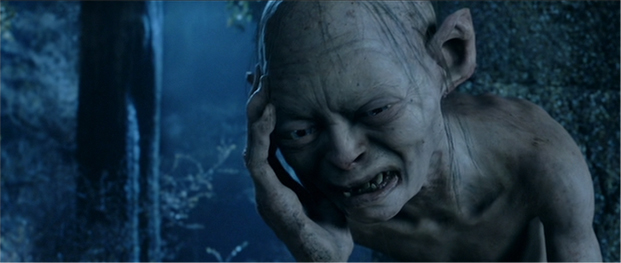
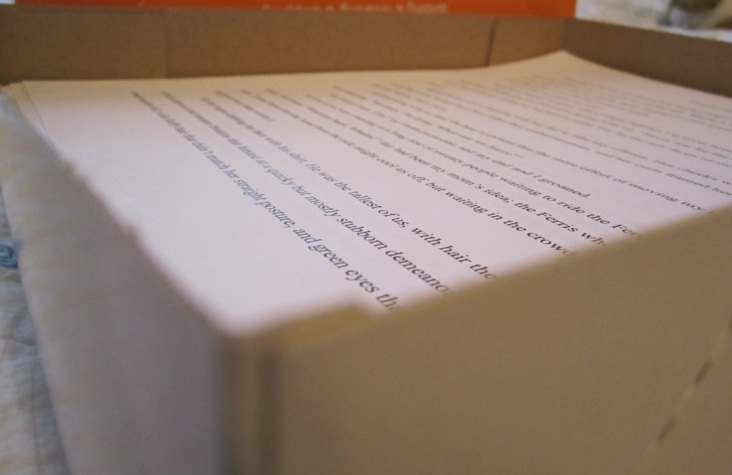
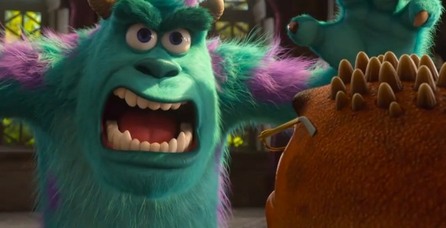
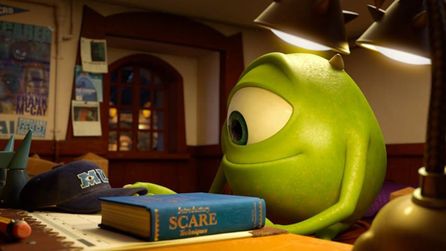
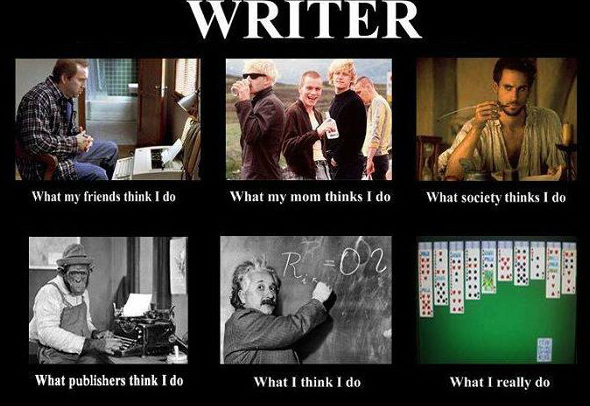
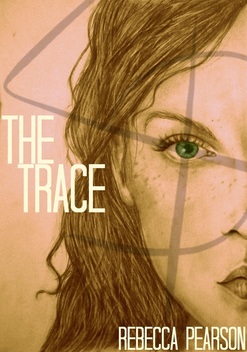
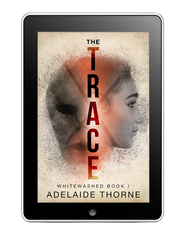
 RSS Feed
RSS Feed